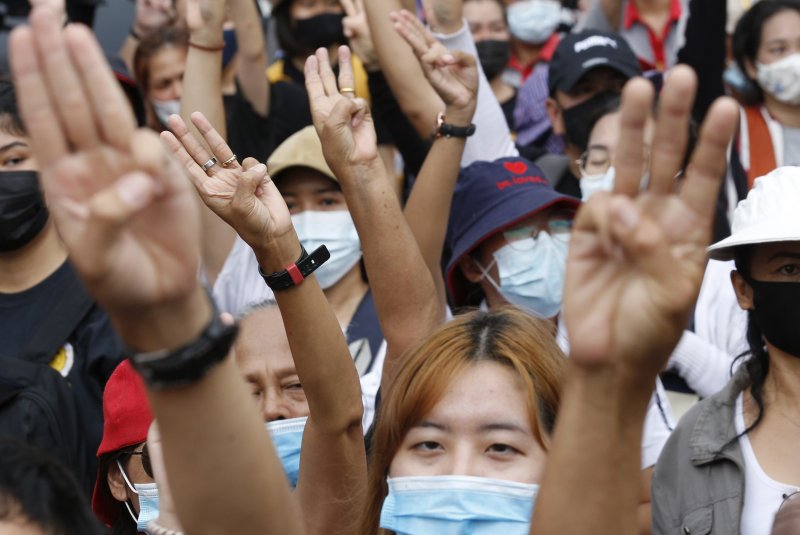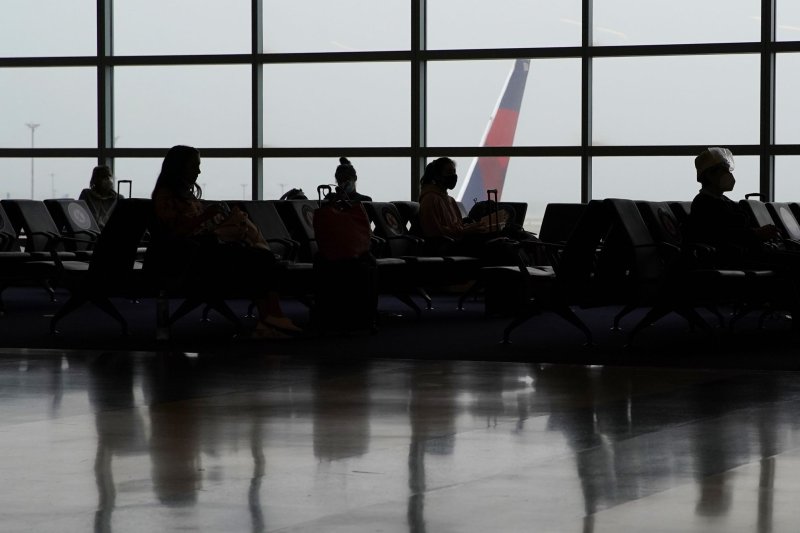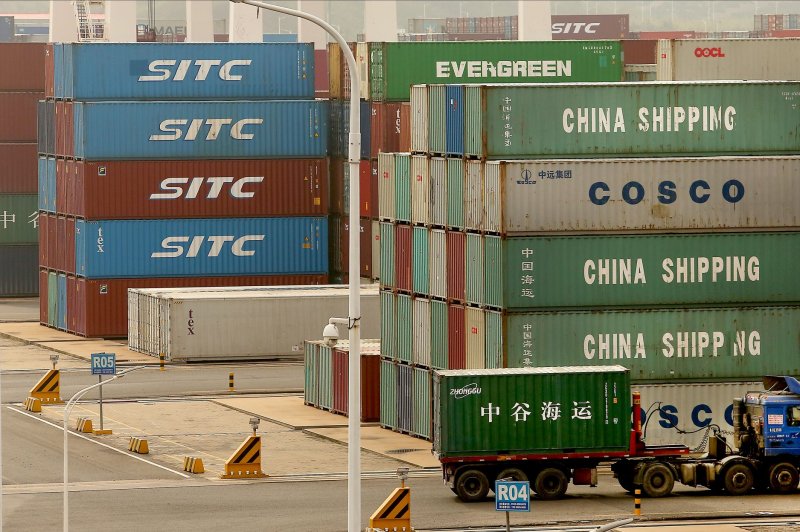Thailand charges protesters with insulting monarchy

Thailand's pro-reform protests have grown and authorities are responding with new charges. File Photo by Narong Sangnak/EPA-EFE
Nov. 25 (UPI) -- Authorities in Thailand are charging protesters with lese-majeste, a draconian law that can punish offenders with a 15-year prison sentence for "insulting the monarchy."
Several protesters including leader Parit "Penguin" Chiwarak have received summons for lese-majeste among other charges, Al Jazeera and The Guardian reported Wednesday.
King Maha Vajiralongkorn said a few weeks earlier Thailand is a "land of compromise," but the charges come after the protesters, many of them students, began to demand the king relinquish control of royal assets estimated to be worth tens of billions of U.S. dollars.
Thailand's Crown Property Bureau, which is under the direct control of the King, manages the royal family's assets that include real estate in Bangkok and shares of Siam Commercial Bank. The king owns a 23% stake in the country's oldest bank, according to The Guardian.
Tens of thousands of people including students have gathered for peaceful protests for months in the nation's capital demanding reform after the 2014 military coup, but police have at times responded with violence. Last week authorities fired water cannons and tear gas at the activists.
Parit said Wednesday the lese-majeste charges he faces would not deter the movement.
"To those who thought to use this section [of the criminal code], let me tell you right here that I am not afraid," Parit said on Twitter.
The activist also said the "ceiling is broken."
On Wednesday protesters gathered outside Siam Commercial Bank rather than the Crown Property Bureau to avoid clashes with pro-royalist groups, reports say.
Thailand's defenders of the monarchy have blamed foreign governments for the protests.
"Don't make Thais fight among each other or our nation will collapse. Remember that! Stop the conflict and stop the interference. This is Thailand, not Hong Kong," the royalists said last month in statement.

Thailand's pro-reform protests have grown and authorities are responding with new charges. File Photo by Narong Sangnak/EPA-EFE
Nov. 25 (UPI) -- Authorities in Thailand are charging protesters with lese-majeste, a draconian law that can punish offenders with a 15-year prison sentence for "insulting the monarchy."
Several protesters including leader Parit "Penguin" Chiwarak have received summons for lese-majeste among other charges, Al Jazeera and The Guardian reported Wednesday.
King Maha Vajiralongkorn said a few weeks earlier Thailand is a "land of compromise," but the charges come after the protesters, many of them students, began to demand the king relinquish control of royal assets estimated to be worth tens of billions of U.S. dollars.
Thailand's Crown Property Bureau, which is under the direct control of the King, manages the royal family's assets that include real estate in Bangkok and shares of Siam Commercial Bank. The king owns a 23% stake in the country's oldest bank, according to The Guardian.
Tens of thousands of people including students have gathered for peaceful protests for months in the nation's capital demanding reform after the 2014 military coup, but police have at times responded with violence. Last week authorities fired water cannons and tear gas at the activists.
Parit said Wednesday the lese-majeste charges he faces would not deter the movement.
"To those who thought to use this section [of the criminal code], let me tell you right here that I am not afraid," Parit said on Twitter.
The activist also said the "ceiling is broken."
On Wednesday protesters gathered outside Siam Commercial Bank rather than the Crown Property Bureau to avoid clashes with pro-royalist groups, reports say.
Thailand's defenders of the monarchy have blamed foreign governments for the protests.
"Don't make Thais fight among each other or our nation will collapse. Remember that! Stop the conflict and stop the interference. This is Thailand, not Hong Kong," the royalists said last month in statement.










